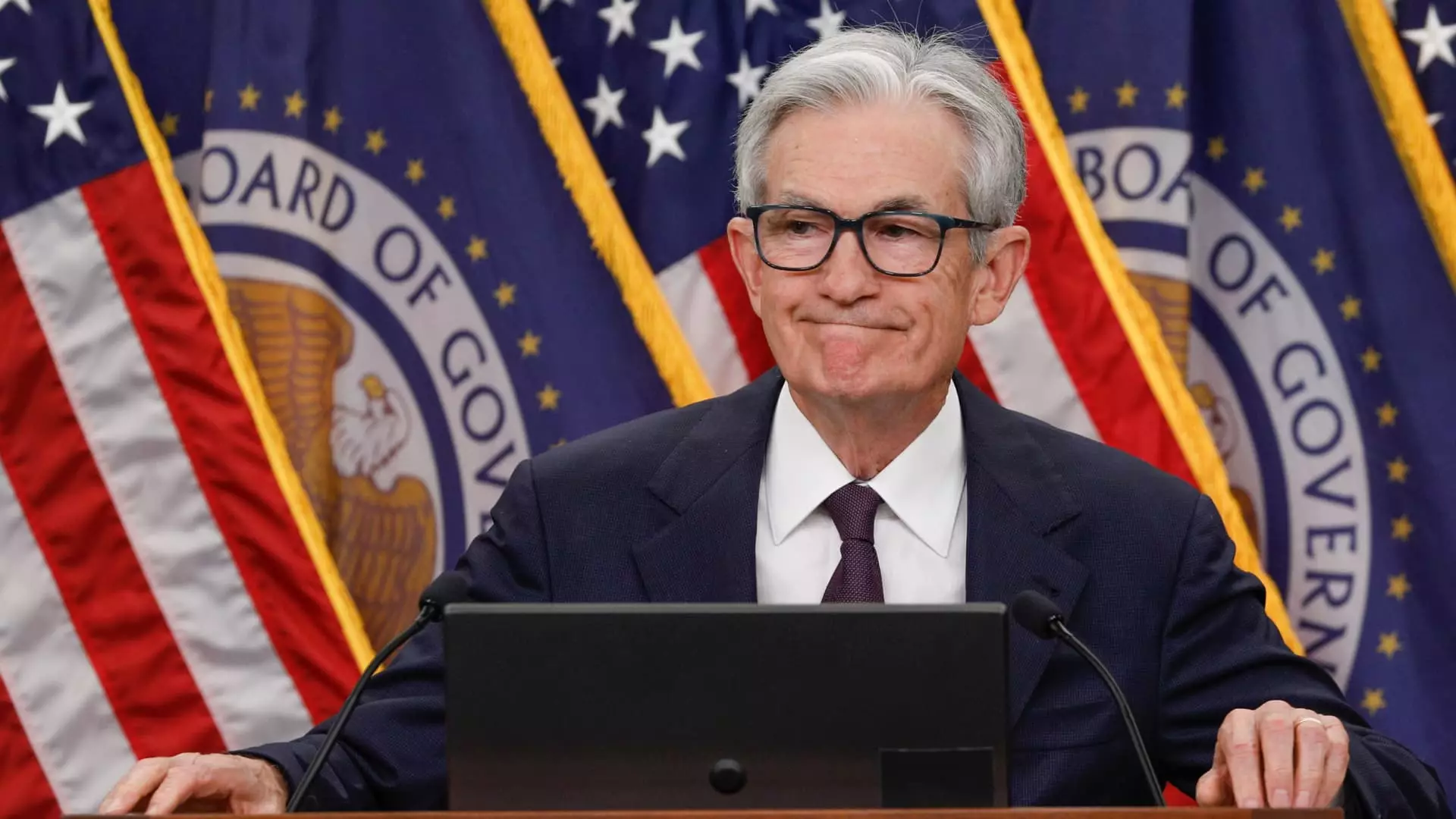As Federal Reserve Chair Jerome Powell prepares for his semiannual testimony on Capitol Hill, the atmosphere is charged with an unprecedented mix of political pressure and economic contemplation. Historically, these congressional sessions serve as a platform for the Fed chair to share insights into the state of monetary policy, but the current backdrop introduces complexities that are hard to ignore. With President Trump and various White House officials vocally advocating for lower interest rates, Powell finds himself in a precarious position where he must navigate the expectations of lawmakers while upholding the independence of the Federal Reserve.
Interest rate policies have historically been stale subjects in the grand chamber of Congress, largely insulated from the immediate political fray. However, as the economy remains tethered to turbulent global uncertainties, the notion of cutting rates is being pushed more fervently than ever. Trump’s insistence on aggressive cuts—targets as high as two percentage points—forecasts scenarios where the traditional barriers shielding monetary policy from political influence may erode.
The Delicate Balance of Independence
The Federal Reserve’s credibility hinges on its independence, a cornerstone principle that has safeguarded its monetary policy decisions from partisan influence. The stakes have never been higher, as illustrated by recent statements from Fed governors, notably Michelle Bowman and Christopher Waller—Trump appointees themselves—who have voiced support for potential rate cuts. Such divergences within the ranks might signal a shift away from the cohesive message Powell has consistently promoted. Financial markets are responding with a sense of urgency; with the odds for a July cut creeping up to 23% and sentiment for a September cut soaring to 82%, traders are bracing for the implications of wavering Fed leadership.
While some motivators for these anticipated cuts stem from legitimate economic concerns, one cannot ignore the looming presence of political motivations. The relationship between economic stabilization and political expediency raises questions about who truly holds power—the Fed or the political machinery of the White House. This tension may spell trouble if the Fed succumbs to demands for instant results. The call for cuts could lead to markets artificially inflating in response to immediate term gains rather than genuine economic health.
Markets and the Misconceptions of Federal Influence
The narrative surrounding the Fed and its supposed omnipotence remains a mythological construct. Critics like Jai Kedia from the Cato Institute suggest that those who expect direct and immediate economic benefits from Fed interventions often overlook the complex, multifaceted nature of macroeconomic interactions. While monetary policy undoubtedly plays a role in shaping economic landscapes, its efficacy is often misinterpreted. The reality is that actions taken by the central bank are typically subject to a lagged effect; immediate reverberations are more of an illusion than a guarantee.
Furthermore, as Powell engages with both sides of the congressional aisle, he will likely encounter hostility from Republicans demanding cuts while also being pressured by liberal stalwarts like Senator Elizabeth Warren, who pushes for a similar agenda. This duality of pleas showcases the deep divides in political thought surrounding economic strategy yet hints at a nascent convergence on the necessity of action. With conflicting expectations swirling in the air, Powell must tread carefully, knowing that any misstep could claim not only his position but the broader integrity of the Fed as well.
The Dangers of Politicizing Monetary Policy
Calls for drastic monetary action have raised the alarm among economists who fear that such steps could undermine the Federal Reserve’s long-standing goals of stability in inflation and employment. Kedia posits that overstepping in response to political pressures risks compromising the institution’s ability to navigate intricate economic conditions. The urge to act swiftly in response to pressures could set a precedent for future political meddling, creating a vicious cycle wherein fiscal decision-making becomes hostage to immediate political whims.
As pressure mounts—brought on by both the prevailing economic climate and external political forces—the Federal Reserve finds itself balancing precariously on the tightrope of public expectation and institutional integrity. Should Powell resolve to sate the clamor for immediate rate cuts, he risks the potential collapse of the Fed’s reputation as an independent arbiter of monetary stability. The lingering question remains: Is the Federal Reserve prepared to endure the slings and arrows of external requests for immediate action, or will it reinstate the fortress of its independence and rightful mandate?

